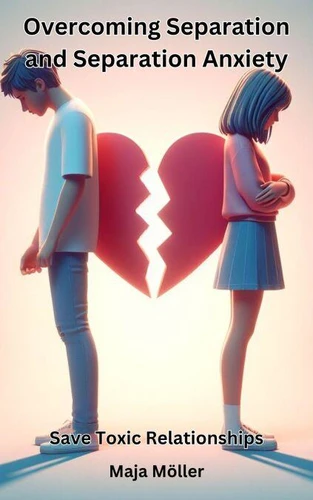Overcoming Separation and Separation Save Toxic Relationships,
Par :Formats :
Disponible dans votre compte client Decitre ou Furet du Nord dès validation de votre commande. Le format ePub est :
- Compatible avec une lecture sur My Vivlio (smartphone, tablette, ordinateur)
- Compatible avec une lecture sur liseuses Vivlio
- Pour les liseuses autres que Vivlio, vous devez utiliser le logiciel Adobe Digital Edition. Non compatible avec la lecture sur les liseuses Kindle, Remarkable et Sony
 , qui est-ce ?
, qui est-ce ?Notre partenaire de plateforme de lecture numérique où vous retrouverez l'ensemble de vos ebooks gratuitement
Pour en savoir plus sur nos ebooks, consultez notre aide en ligne ici
- FormatePub
- ISBN8224075119
- EAN9798224075119
- Date de parution23/05/2024
- Protection num.pas de protection
- Infos supplémentairesepub
- ÉditeurVirtued Press
Résumé
Breakups can have a variety of emotional effects on those affected, which can be profound and long-lasting. One of the most common emotional reactions to a breakup is grief. The loss of a partner can lead to an intense feeling of loss, accompanied by sadness, emptiness and loneliness. In addition to sadness, anger and anger can also occur in response to a breakup. Disappointment over the end of the relationship, feelings of betrayal, or inability to control the situation can lead to strong outbursts of anger.
These emotions are often part of the process of processing and accepting a breakup. Feelings of guilt are also common emotional reactions to a breakup. Those affected may blame themselves for the failure of the relationship or for mistakes they have made. This self-blame can lead to a negative self-image and low self-esteem. Loneliness is another emotional consequence of a breakup. The absence of a partner can make those affected feel isolated and alone.
Social support from friends and family can be particularly important in relieving loneliness at such times. It is important to note that these emotional reactions can vary individually and are influenced by various factors such as personality, coping strategies and social environment. A supportive network of friends, family, or professionals can help deal with the emotional impact of a breakup and promote the healing process.
These emotions are often part of the process of processing and accepting a breakup. Feelings of guilt are also common emotional reactions to a breakup. Those affected may blame themselves for the failure of the relationship or for mistakes they have made. This self-blame can lead to a negative self-image and low self-esteem. Loneliness is another emotional consequence of a breakup. The absence of a partner can make those affected feel isolated and alone.
Social support from friends and family can be particularly important in relieving loneliness at such times. It is important to note that these emotional reactions can vary individually and are influenced by various factors such as personality, coping strategies and social environment. A supportive network of friends, family, or professionals can help deal with the emotional impact of a breakup and promote the healing process.
Breakups can have a variety of emotional effects on those affected, which can be profound and long-lasting. One of the most common emotional reactions to a breakup is grief. The loss of a partner can lead to an intense feeling of loss, accompanied by sadness, emptiness and loneliness. In addition to sadness, anger and anger can also occur in response to a breakup. Disappointment over the end of the relationship, feelings of betrayal, or inability to control the situation can lead to strong outbursts of anger.
These emotions are often part of the process of processing and accepting a breakup. Feelings of guilt are also common emotional reactions to a breakup. Those affected may blame themselves for the failure of the relationship or for mistakes they have made. This self-blame can lead to a negative self-image and low self-esteem. Loneliness is another emotional consequence of a breakup. The absence of a partner can make those affected feel isolated and alone.
Social support from friends and family can be particularly important in relieving loneliness at such times. It is important to note that these emotional reactions can vary individually and are influenced by various factors such as personality, coping strategies and social environment. A supportive network of friends, family, or professionals can help deal with the emotional impact of a breakup and promote the healing process.
These emotions are often part of the process of processing and accepting a breakup. Feelings of guilt are also common emotional reactions to a breakup. Those affected may blame themselves for the failure of the relationship or for mistakes they have made. This self-blame can lead to a negative self-image and low self-esteem. Loneliness is another emotional consequence of a breakup. The absence of a partner can make those affected feel isolated and alone.
Social support from friends and family can be particularly important in relieving loneliness at such times. It is important to note that these emotional reactions can vary individually and are influenced by various factors such as personality, coping strategies and social environment. A supportive network of friends, family, or professionals can help deal with the emotional impact of a breakup and promote the healing process.





















